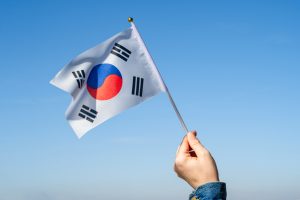The widely unpopular martial law decree by President Yoon Suk-yeol on December 3 and his impeachment on December 14 symbolized a triumph for South Korea’s democracy. However, the impeachment of acting President Han Duck-soo, occurring just two weeks after Yoon’s ouster under contentious circumstances regarding parliamentary voting rules, casts a shadow over what was initially a celebration of South Korea’s democratic resilience.
On December 27, Han was impeached by the opposition with a total vote of 192 out of 300, eight short of the two-thirds majority applicable for impeaching a president in South Korea. Arguably, the National Assembly Speaker Woo Won-shik allowed the quorum for impeachment of the acting president with a simple majority of 151 votes needed for Cabinet ministers. Soon after the voting ended, Han resigned from office and his duties while underscoring the need to not add further uncertainty. This incident marked the first time that an acting president was impeached in the history of democratic South Korea.
Han was already a target in the eyes of the main opposition Democratic Party (DP), for his alleged involvement in the imposition of martial law under Yoon. However, two days after Yoon’s impeachment, the DP leader, Lee Jae-myung, had made a sympathetic statement with regard to Han’s position, assuring the country that the DP will not proceed with excessive impeachments as it would lead to confusion in national governance.
By late December, the opposition retracted its earlier stance, resulting in South Korea witnessing its third president within the space of a single month. One of the main reasons for the DP to finally push for the impeachment of Han was his reluctance to appoint an additional three justices to fill vacancies in the Constitutional Court, which will finally decide Yoon’s impeachment.
While the DP’s reasoning may hold merit, the decision to establish a simple majority quorum for Han’s impeachment raises questions about procedural legitimacy. This unprecedented situation lacks constitutional guidelines, further complicating the legitimacy of Han’s impeachment. Moreover, the second impeachment might backfire by lending credence to the earlier accusation by Yoon that the opposition has been unilaterally pushing its agenda.
It was another unilateral push by the DP that eventually resulted in the parliamentary approval of the three new judges on December 26. The question that haunts South Korea now is whether the three additional justices are to be seen as politically leaning toward the DP or are to be considered as apolitical.
Of the three new judges approved by the National Assembly, Ma Eun-hyuk and Jeong Gye-seon are reported to be recommended by the DP, whereas Cho Han-chang was recommended by the People Power Party (PPP), Yoon’s party. However, the PPP lawmakers did not participate in the approval of the three judges during the National Assembly voting on December 26.
Getting deeper into the six judges already sitting in the Constitutional Court, there are four judges who were appointed during former President Moon Jae-in’s term or by the former Supreme Court Chief Justice Kim Myeong-su, who was appointed by Moon. They are Moon Hyung-bae, Lee Mi-son, Kim Hyung-du, and Jung Jung-mi. On the other hand, there are two judges – namely Cheong Hyung-sik and Kim Bok-hyeong – sitting in the Constitutional Court appointed under Yoon or by the current Supreme Court Chief Justice Cho Hee-dae, who was appointed by Yoon.
New acting President Choi Sang-mok recently approved the appointments of two of the three new judges (reserving approval on Ma Eun-hyuk). Thus the Constitutional Court now has eight judges, five recommended by the DP, and three by the PPP.
Due to the “top priority” of the Yoon impeachment case, the Constitutional Court had already begun its preliminary hearings on December 27 with the six sitting judges. In fact, under the Constitutional Court law, at least seven judges are to be present for a case review. Additionally, a total of at least six judges must be in approval for an impeachment to be upheld.
The quorum of having at least seven judges now stands fulfilled as the additions of Jung Gye-seon and Cho Han-chang bring the Constitutional Court to eight members. Hence, South Korea will avoid legitimacy concerns over the clause stipulating at least seven judges to be present, not to mention the dilemma of needing the impeachment decision by the judges to be unanimous.
The political interests on both sides, which were taking precedence over the principles of parliamentary democracy in South Korea, need to be subdued. The country is now on its third president in the space of under a month. The main opposition DP, seemingly on a single-minded agenda, could possibly push the PPP further down the pecking order before the Constitutional Court can give its final ruling. A sense of responsibility must prevail in the parliament to ensure stability in national governance.
It was a celebration of democratic ideals in the beginning of December when South Korean legislators negated the martial law decree and passed a resolution for Yoon to be impeached, with even PPP lawmakers switching sides. Now, however, the situation is swiftly turning into a purely political mission. As South Korea enters the new year, its leaders must prioritize constitutional integrity over partisan gains to ensure that the democratic ideals celebrated in early December do not devolve into enduring political instability.
There is an apparent shift to political limbo, with democratic principles increasingly at stake, as South Korea is struggling to navigate its toughest democratic test yet. Going forward, the public that turned out en masse to protest Yoon’s decree could very well turn against the DP if it pursues a political agenda at the cost of further undermining constitutional stability. While Yoon’s illegitimate actions triggered this crisis, they do not justify the opposition’s apparent browbeating of parliamentary procedures, which risks destabilizing the future of South Korea’s democracy.

































